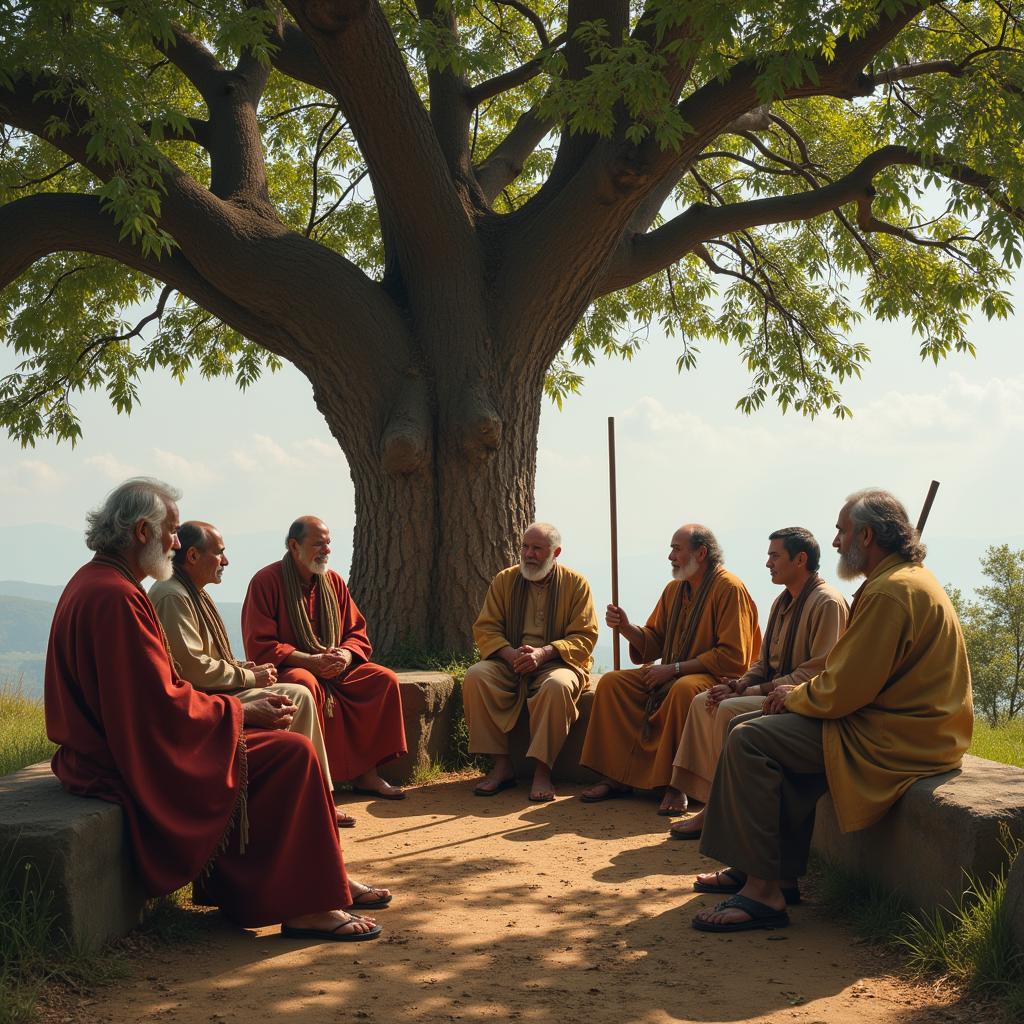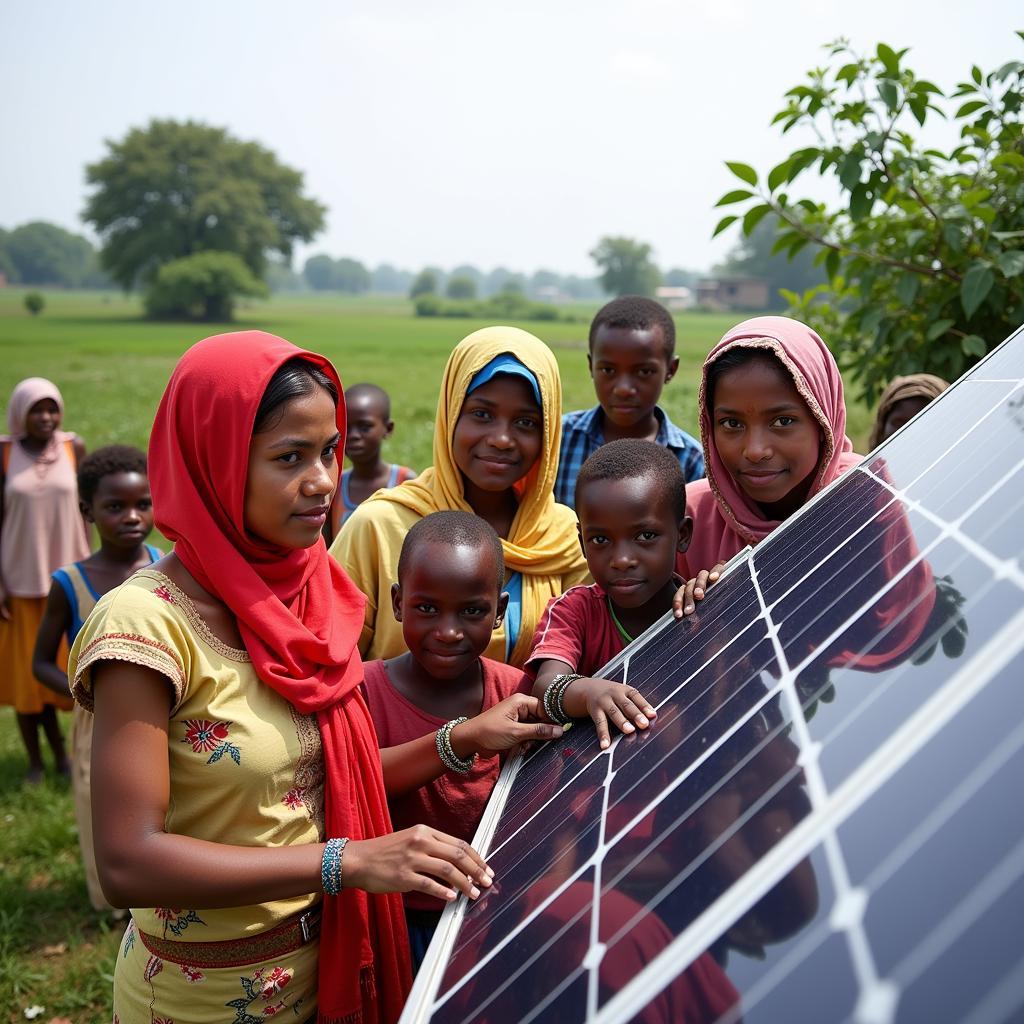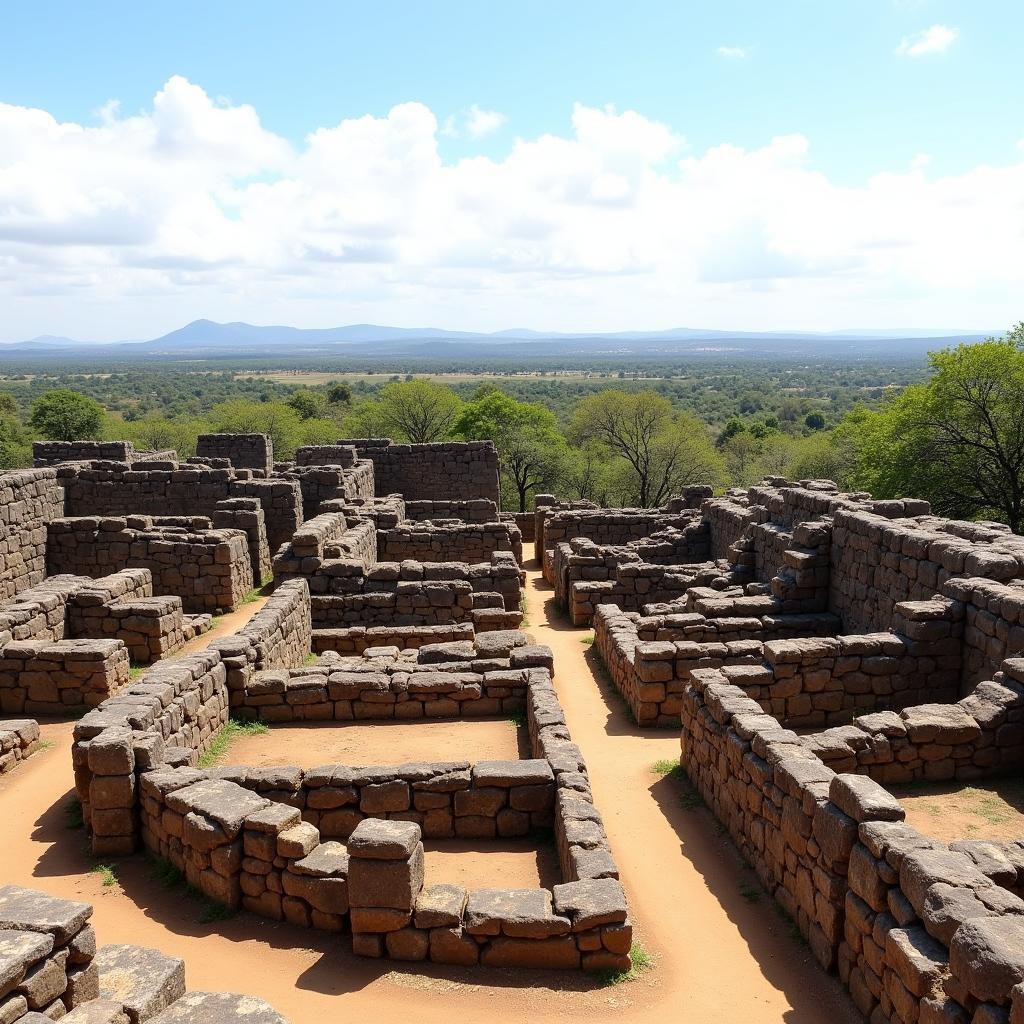Administration in an African Village: A Deep Dive
Administration in an African village is a complex and fascinating tapestry woven from ancient traditions, modern influences, and the unique needs of each community. This intricate system governs everything from land ownership and dispute resolution to social welfare and cultural preservation. Understanding village administration offers a glimpse into the heart of African society, revealing its values, challenges, and remarkable resilience.
Traditional Structures of Power: Chiefs and Councils
Historically, many African villages were led by a chief, often a hereditary position passed down through generations. The chief served as the central authority figure, responsible for maintaining order, settling disputes, and representing the village in external affairs. They were often assisted by a council of elders, who provided wisdom and guidance based on their experience and knowledge of customary law.  Traditional African Village Council Meeting
Traditional African Village Council Meeting
The Evolution of Village Administration
While traditional structures remain influential, village administration has evolved significantly over time. The influence of colonialism, the rise of nation-states, and the spread of democracy have all played a role in reshaping local governance. In many countries, village administrations now operate within a broader national framework, incorporating elements of both traditional and modern systems. This often involves elected officials working alongside traditional leaders, creating a dynamic interplay between established customs and contemporary practices. This blend can be seen in the ways disputes are resolved, with formal legal systems often operating in parallel with traditional methods of conflict mediation.
Modern Challenges and Opportunities
African villages face numerous challenges in the 21st century, including poverty, access to healthcare and education, and the impacts of climate change. Effective administration is crucial in addressing these issues and building a sustainable future. This requires innovative approaches that leverage local knowledge and resources while also engaging with external partners. For example, some villages have successfully implemented community-based healthcare programs that combine traditional healing practices with modern medical techniques.
The Role of Women in Village Administration
Women have always played a vital role in African village life, but their contributions to formal administration have often been overlooked. Increasingly, however, women are taking on leadership roles and advocating for their rights and needs within the community. Their involvement brings valuable perspectives and expertise to issues such as healthcare, education, and economic development.  African Women Leading Community Meeting
African Women Leading Community Meeting
How Administration Impacts Daily Life
From allocating land for farming to organizing community events, administration touches every aspect of daily life in an African village. It provides a framework for resolving conflicts, managing resources, and ensuring the well-being of the community. Understanding this framework is essential for anyone seeking to engage with African communities respectfully and effectively.
Navigating the Complexities
Navigating the complexities of village administration requires cultural sensitivity and a deep understanding of local customs and traditions. Outsiders seeking to work with African villages should prioritize building relationships based on trust and mutual respect. This involves actively listening to community members, recognizing their expertise, and working collaboratively to identify solutions that address local needs.
“Effective administration in an African village is not about imposing external models, but about empowering communities to build on their own strengths and traditions.” – Dr. Anika Kioko, Professor of African Studies
Looking Towards the Future
The future of Administration In African Villages lies in finding a balance between preserving valuable traditions and embracing innovation. This requires a commitment to inclusivity, transparency, and accountability, ensuring that all members of the community have a voice in shaping their future.  African Village Solar Panel Project This balance will be crucial for meeting the challenges of the 21st century and creating thriving, resilient communities.
African Village Solar Panel Project This balance will be crucial for meeting the challenges of the 21st century and creating thriving, resilient communities.
“The strength of an African village lies in its people, and their ability to adapt and innovate while staying true to their roots.” – Chief Kwame Asante, Traditional Leader
Conclusion
Administration in an African village is a dynamic and evolving process, shaped by both tradition and modernity. Understanding its complexities is essential for appreciating the rich tapestry of African culture and for working effectively with local communities. As African villages continue to navigate the challenges and opportunities of the 21st century, effective administration will be crucial in building a sustainable and prosperous future.
FAQ
- What is the role of a village chief in modern Africa?
- How do traditional and modern systems of governance interact in African villages?
- What are some of the key challenges facing village administration in Africa?
- How are women contributing to village administration?
- What is the importance of understanding local customs and traditions in engaging with African villages?
- How can outsiders work effectively with African villages?
- What is the future of administration in African villages?
When you need assistance, please contact us by Phone: +255768904061, Email: [email protected] or visit us at Mbarali DC Mawindi, Kangaga, Tanzania. We have a 24/7 customer service team.


